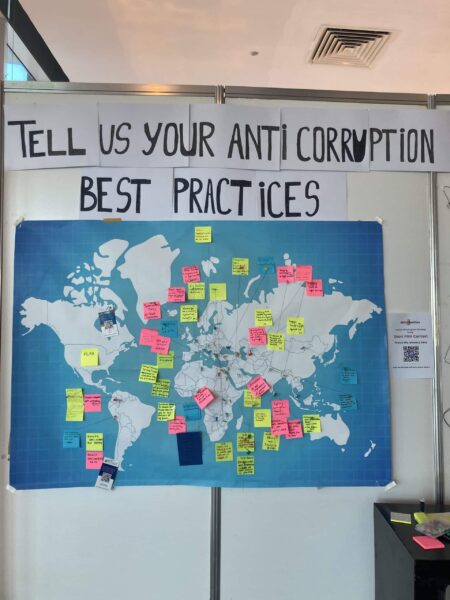22 April 2025-
Transparency International Malaysia (TI-M) is an independent, non-governmental, and non-partisan organisation committed to the fight against corruption. TI-M is the accredited National Chapter of Transparency International, as well as a member of the UNCAC Coalition. Founded in 1998, the organization focuses on improving business integrity, youth empowerment, and reducing corruption in the defense sector, among other anti-corruption initiatives.
TI Malaysia’s work on Whistleblower Protection
TI-M has been advocating for stronger whistleblower protection measures in Malaysia. Malaysia’s 2010 Whistleblowers Protection Act encompasses protection for whistleblowers as a result of their revelations and exposure of wrongdoings, such as reporting corruption or embezzlement. However, according to TI-M, the whistleblower protection law falls short of delivering. It looks good on paper, but in practice, it has encouraged few people to come forward and blow the whistle on corruption and wrongdoings. Less than 1000 complaints have been given protection since 2010, when the law was enacted. According to Dr. Muhammad Mohan, a whistleblower himself and the (former) President of TI-M, one of the reasons why the Whistleblowers Protection Act remains inefficient is that protection is often withdrawn when there are other laws that supersede the requirement for protection under the Whistleblower Protection Act. For example, the Official Secrets Act (OSA)of 1972 supersedes all other laws, including the Whistleblowers Protection Act. This creates a problem because civil servants who report wrongdoing may be accused of exposing information in the government and can be charged under the OSA.
Despite these shortcomings, Dr. Mohan highlighted the value of having the Whistleblowers Protection Act. Many other countries in the region have no whistleblowing protection laws, or whistleblowing even falls under criminal law.
In significant law drafting processes in Malaysia, civil society organisations (CSOs) are invited to provide their inputs. However, the inputs are often disregarded in the final drafts. Currently, TI-M is working with other CSOs in the country to introduce amendments to the existing law aimed at improving whistleblower protection.
Malaysia is taking over as chair of the Association of Southeast Asian Nations (ASEAN) in 2025. Despite anti-corruption not being a major topic of focus, TI-Malaysia will advocate for a strong Whistleblowing Protection Act in ASEAN countries.

Recommendations
To improve the whistleblower protection, Dr. Mohan suggests the following:
- Improving internal reporting mechanisms – reporting without the fear of reprisal. As the majority of companies lack the resources to handle whistleblowers’ reports and avoid conflict of interest, Dr. Mohan suggests outsourcing the complaints to third-party companies.
- A whistleblower must be able to report any wrong doings to the media. As per the current law, a whistleblower may only report their findings to enforcement agencies, thus excluding the role of the media.
- Involving civil society throughout the law drafting process as meaningful civil society engagement is necessary to ensure the concerns are addressed.
- The Whistleblower Protection Act should allow a certain period where after the whistleblower has reported to the enforcement authority, there must be a response from the authorities to the whistleblower within 90 days (similar to the American Law). Failure to respond could allow the whistleblower to report to the media anonymously, while still receiving protection.



